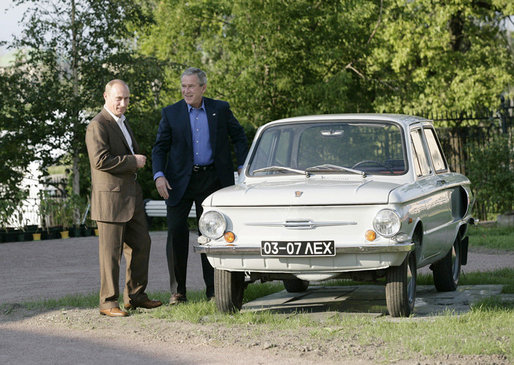
During the first phone conversation between Vladimir Putin and Donald Trump (in which Vice President Mike Pence also participated), the two sides discussed key aspects of the international agenda, from cooperating in the war with the Islamic State in Syria, to the crisis in Ukraine and developing trade and economic ties. The positive reaction of both sides to the first talks indicates a mutual desire to improve relations and make speedy preparations for a face-to-face meeting between the two presidents.
Since the Cold War ended a quarter century ago and the USSR collapsed, the relationship between Russia and the U.S. has experienced highs and lows. Toward the end of the 1990s, American euphoria at the victory of the “liberals” in Russia, and Moscow’s hope for a quick and full integration into the West, were replaced by mutual admonishments and irritation. Moscow did not like the expansion of NATO to the east under Washington’s aegis, nor the war with Yugoslavia by the U.S. and its allies, the clearly unfriendly position on the conflict in Chechnya, and, really, the complete unwillingness of the U.S. to take into account any Russian interests in the near and not-near abroad.* America was irritated that Russia still managed to counteract the will of the only superpower and the reign of the Pax Americana.
At the beginning of the 2000s, the election of a new U.S. president, Republican George W. Bush, revived Moscow’s hopes of establishing closer relations with Washington. After negotiations with Putin in Slovenia in the summer of 2001, Bush proclaimed: “[Vladimir Putin is] an honest, straightforward man who loves his country. He loves his family. We share a lot of values. I view him as a remarkable leader. I believe his leadership will serve Russia well … I looked the man in the eye. I found him to be very straightforward and trustworthy.”
After the terrorist attacks on 9/11, President Putin was the first world leader to call the American president, to express his sympathy and offer any kind of support and help that was needed. Moscow hoped to become America’s “junior partner” in the war on terrorism. The following years brought a further expansion of NATO in the post-Soviet space, America’s unilateral withdrawal from the 1972 ballistic missile treaty, the aggression against Iraq (which harmed Russia’s political and economic interests in the Middle East), and the August 2008 war in the Caucasus.
Nevertheless, that very same year, Barack Obama, a Democrat with the image of a dove, won against the hawkish and overtly Russophobic John McCain, which again offered hope for a thaw in relations between the two countries. However, after the “reset,” there soon came attempts by the U.S. to destabilize the situation in Russia on the eve of the 2012 elections, the overthrow of the Ukrainian government as supported by the United States, and the return of Washington and its key allies to an aggressive and anti-Russian stance and rhetoric from the time of the Cold War with the USSR.
Now Trump is president, and again, hopes for a growing partnership and productive, mutual cooperation between Russia and the U.S. have been resurrected. Public statements by the new American president indicate that the U.S. plans to repeat the geopolitical turn of one of Trump’s idols, Richard Nixon, who, at the beginning of the 1970s, made a deal with a hostile Red China in the interest of building a common anti-Soviet front. The new American administration will attempt to make Russia its partner in a geopolitical rivalry with China, Iran, Cuba and other countries.
The intention of the new American administration to reformat the system of international relations opens up a new window of opportunity for Russia. The hard pro-Israel position of the White House and the spread of an anti-Arab and anti-Muslim mood in the U.S. create a new opportunity for Russian diplomacy in the Middle East and could, in time, create a reputation for Russia as a more reliable intermediary in the peace process between the Israelis and Palestinians, an intermediary that would be more trusted by both sides. Worsening relations between the U.S. and its Latin American neighbors present Moscow with a chance to increase its influence in that region.
That said, Moscow should take advantage of the circumstances in Washington to improve its relations with strategic partners with great caution. In the worst case, Russia risks losing its current allies and not getting any new ones in exchange. As the experience of the past few decades shows, hopes for friendship with Washington evaporate quickly.
*Translator’s note: The phrase “near abroad” refers to countries in Russia’s traditional sphere of influence: former Soviet Republics and Warsaw Pact members.

Leave a Reply
You must be logged in to post a comment.